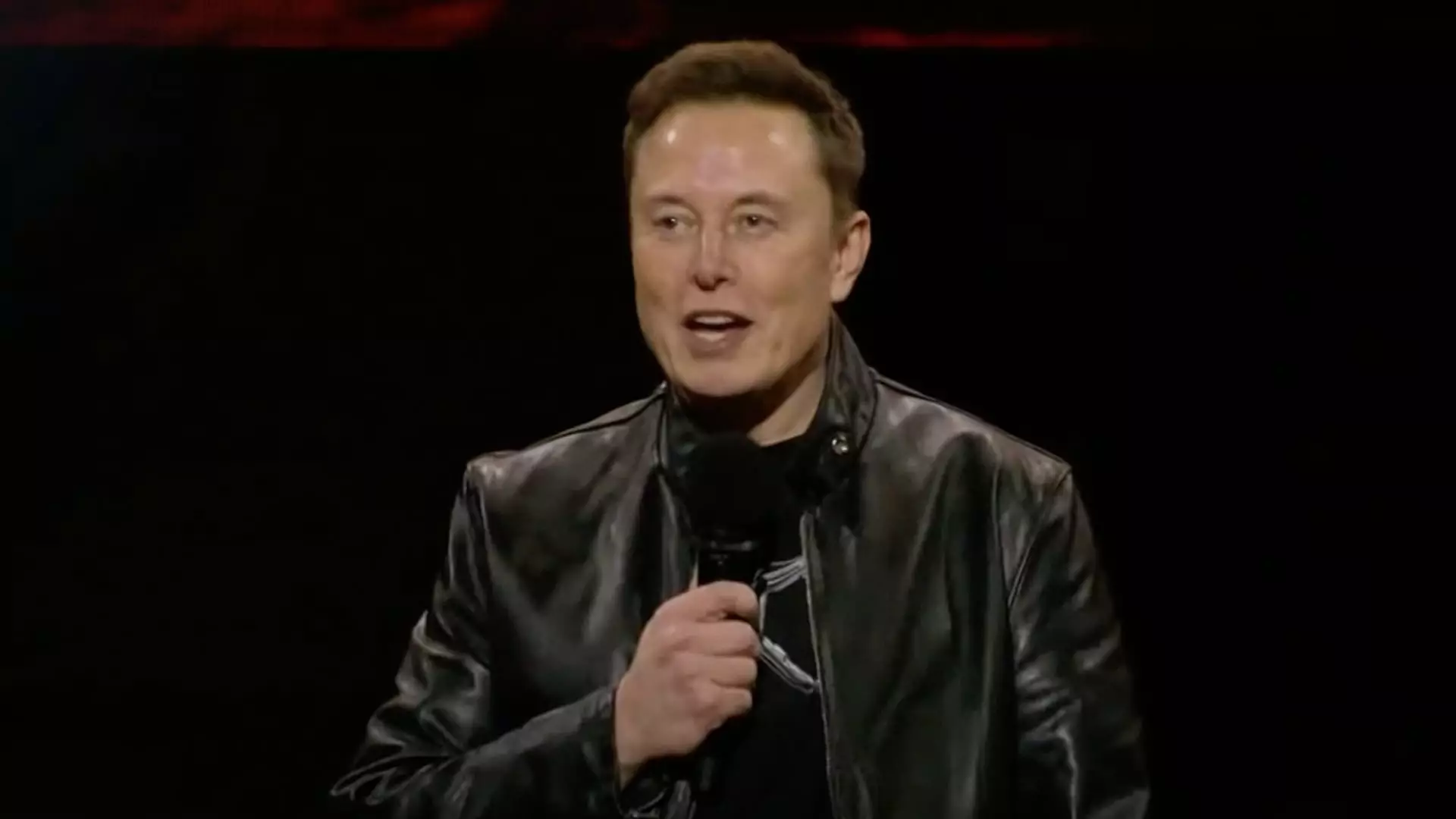Elon Musk, a figure emblematic of innovation and controversy alike, is embroiled in yet another legal debacle. This time, the spotlight shines not just on Musk himself, but also on the intersections of technology, intellectual property, and artistic integrity. A lawsuit filed by Alcon Entertainment, the producer of the acclaimed film “Blade Runner 2049,” accuses Musk and his automotive company Tesla, along with Warner Brothers Discovery, of unlawfully utilizing copyrighted imagery of the film to promote Tesla’s ambitious robotaxi concept known as the Cybercab.
The Claims of Copyright Infringement
Alcon Entertainment’s lawsuit unfolds in a complex narrative of permissions denied and alleged digital deception. According to their filings, Musk and his associates approached Alcon seeking permission to utilize a specific “iconic still image” from the film for a promotional event designed to showcase the Cybercab, set against the scenic backdrop of Warner Brothers Discovery’s studio lot in Burbank, California. The attempt for authorization was met with a firm denial, a rejection reportedly aimed to maintain the artistic integrity and ownership rights over the film’s imagery.
Rather than conforming to the established parameters of copyright law, the lawsuit alleges that Musk and his team proceeded to display what Alcon describes as an AI-generated fake image during a live-streamed presentation. This incident, as outlined in legal documents, has been characterized by Alcon as a “massive economic theft,” undermining both the copyright of the original artwork and the potential economic gains tied to Alcon’s future ventures, including partnerships for the upcoming television series “Blade Runner 2099.”
The Fallout from the Allegations
The lawsuit cites not only copyright infringement but also false endorsement, asserting the damaging implications of associating the renowned “Blade Runner” brand with Musk, who has developed a reputation for provoking controversies with his outspoken and often politically charged remarks. This association, Alcon suggests, could jeopardize relationships with potential partners and tarnish the brand image they aim to uphold. The producer’s concerns highlight a broader issue wherein a brand’s association with a singular figure—especially one as polarizing as Musk—can result in substantial reputational harm.
The document also touches upon broader societal factors, particularly regarding Musk’s political engagements and how they could deter corporations from collaborating with Tesla. Alcon’s suit points out that associations with Musk could be problematic for any prudent brand, especially if they hold contrary views to Musk’s well-documented political stances.
Public perception plays a crucial role in corporate branding, and in light of this lawsuit, one might question the long-term implications for Tesla and Musk. While the tech entrepreneur has successfully positioned Tesla at the forefront of the automotive industry, allegations like these have the potential to dent that innovation-driven image. For instance, Musk’s history of controversial tweets and statements on platforms like X (formerly Twitter) contribute to ongoing speculation about the stability of his public image and the trust companies place in associating with his enterprises.
For Alcon, the financial impact of the alleged infringement may not be confined solely to immediate damages. Their ongoing negotiations with automotive brands for potential partnerships hinge significantly on maintaining brand integrity. The lawsuit, therefore, emerges not only as a defense of intellectual property rights but also as a crucial measure to safeguard the company’s reputation.
This incident raises important questions about the ethics and implications of using artificial intelligence to generate images or any derivative work. As AI technology continues to evolve, so too does the potential for ethical dilemmas surrounding originality and copyright infringement. With creators and brands increasingly cautious of their digital rights, the legal landscape around AI and creative ownership is likely to grow in complexity.
As the case progresses, it will undoubtedly be a focal point in discussions around copyright, ethical AI use, and the consequences of celebrity affiliation in brand partnerships. Whether this lawsuit serves as a mere footnote in the expansive narratives of Musk’s ventures or becomes a landmark case in defining AI’s role in creative industries remains to be seen. The intersection of technology, art, and law is rapidly evolving, and each incident, such as this, contributes to shaping that evolution. The stakes are high, not just for Musk and Tesla, but for the future of intellectual property as a whole.


Leave a Reply